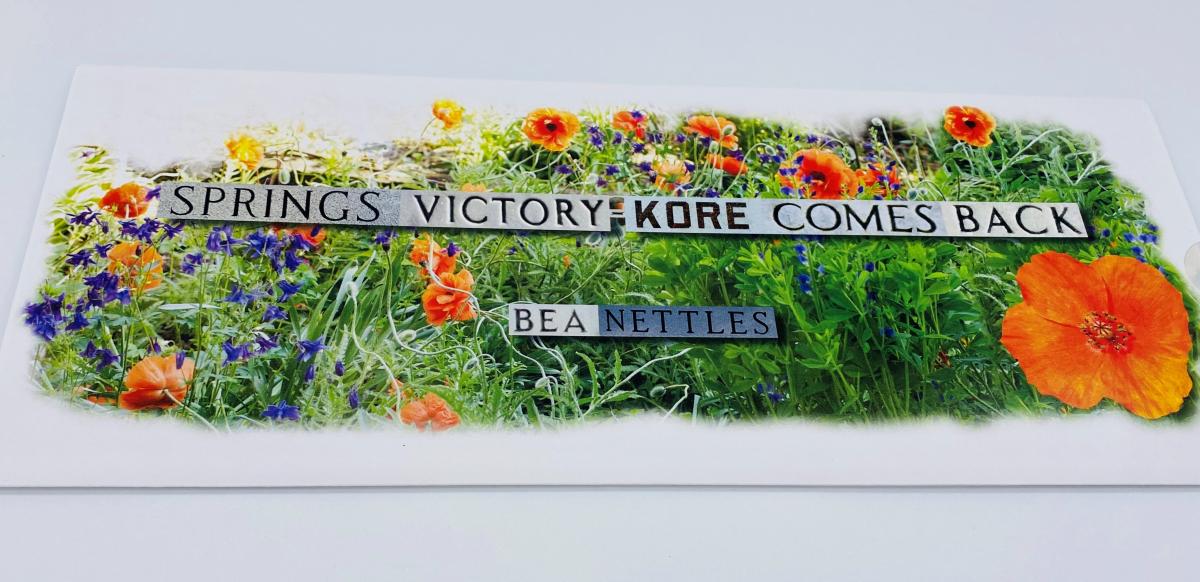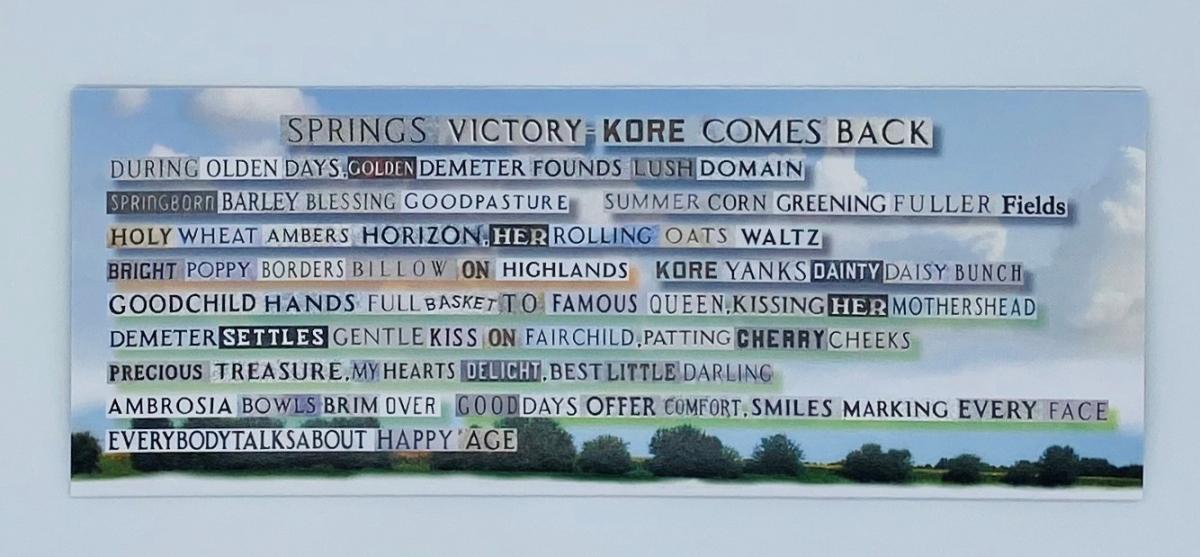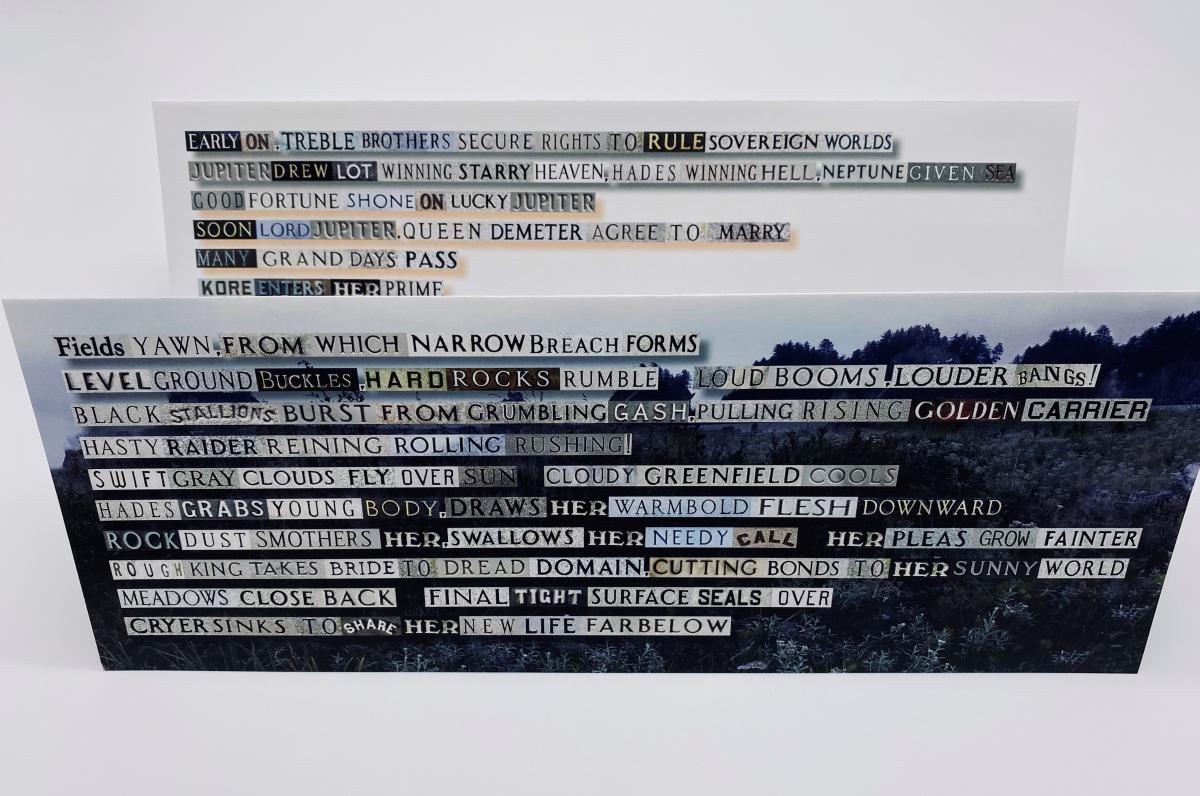These days, I frequently feel like I can’t put a sentence together, let alone a poem. The blank page or screen glares white. I don’t know where to begin.
Found poetry, which uses words and phrases drawn from somewhere other than your own mind, offers one route out of that blankness. Edward Hirsch’s A Poet’s Glossary describes found poetry this way: “Something that was never intended to be a poem—a newspaper article, a street sign, a letter, a scrap of conversation—is refashioned as a poem […] Something mundane takes on a new layer of meaning.”

Photographer and bookmaker Bea Nettles brings a unique approach to found poetry, one that exemplifies the idea of creating new meaning out of something that wasn’t intended to be artful. In the introduction to her book Springs Victory: Kore Comes Back, Nettles writes:

In Springs Victory, Nettles uses words drawn from headstones to tell the ancient myth of Persephone, lovely daughter of Demeter lost to Hades and the underworld who ultimately returns to her mother every spring. The myth embodies the drama of seasons, the cycle of life and death. By using images of headstones to tell the story, Nettles provides a visceral reminder of death, but she also enacts the myth’s theme of rebirth and revival, creating something new from these markers for the departed.

What words are around you at home, in your neighborhood, wherever you find yourself these days? Consider starting a list of words that you encounter, or take photographs of them, inspired by Nettles’ headstones. When you’ve built up a stock of words (50? 100? 10?), cut up your list into individual words, or print out your images. Try arranging these found words into a poem. You can be strict, using only words you have found, or you might allow yourself to add a word here or there as needed.
As you approach creating a found poem, ask yourself, what new words might you find to tell familiar stories? What familiar words might lead you to new ideas? Let what you find be a place to rest and to begin again, a reminder that something new can come from what already exists.

